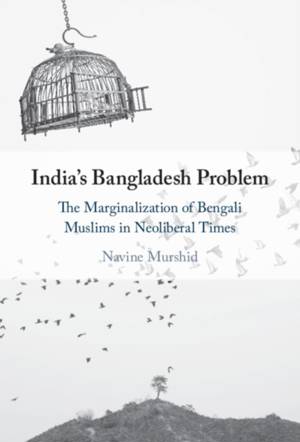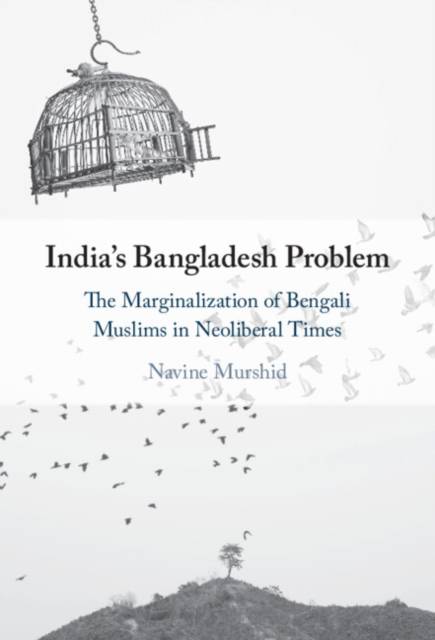
Door een staking bij bpost kan je online bestelling op dit moment iets langer onderweg zijn dan voorzien. Dringend iets nodig? Onze winkels ontvangen jou met open armen!
- Afhalen na 1 uur in een winkel met voorraad
- Gratis thuislevering in België vanaf € 30
- Ruim aanbod met 7 miljoen producten
Door een staking bij bpost kan je online bestelling op dit moment iets langer onderweg zijn dan voorzien. Dringend iets nodig? Onze winkels ontvangen jou met open armen!
- Afhalen na 1 uur in een winkel met voorraad
- Gratis thuislevering in België vanaf € 30
- Ruim aanbod met 7 miljoen producten
Zoeken
India's Bangladesh Problem
The Marginalization of Bengali Muslims in Neoliberal Times
Navine Murshid
Hardcover | Engels
€ 158,95
+ 317 punten
Omschrijving
In recent years, Bengali Muslims in India have faced harassment and scapegoating as the trope of the illegal Bangladeshi has gained political currency. India's Bangladesh Problem explores the experience of Bengali Muslims on the Indian side of the India-Bangladesh border in the context of neoliberal policies, unequal bilateral relations, labor migration, contested citizenship, and increasingly xenophobic government rhetoric. Drawing on extensive research in the borderlands and hinterlands of both countries, Navine Murshid argues that ever-deepening neoliberal policies across the border have shaped how certain ethnic groups are valued and have reconfigured social hierarchies. She provides new insights into the strategic inclusion, exclusion, and invisibility that characterizes Bengali Muslims' lives, rendering them a group susceptible to manipulation by virtue of their ethnic kinship to the majority of Bangladeshis. In turn, Bengali Muslims simultaneously resist and utilize received neoliberal ideas to sustain their lives and livelihoods at a time when neoliberal development has largely bypassed them.
Specificaties
Betrokkenen
- Auteur(s):
- Uitgeverij:
Inhoud
- Aantal bladzijden:
- 300
- Taal:
- Engels
Eigenschappen
- Productcode (EAN):
- 9781009259422
- Verschijningsdatum:
- 6/04/2023
- Uitvoering:
- Hardcover
- Formaat:
- Genaaid
- Afmetingen:
- 152 mm x 229 mm
- Gewicht:
- 553 g

Alleen bij Standaard Boekhandel
+ 317 punten op je klantenkaart van Standaard Boekhandel
Beoordelingen
We publiceren alleen reviews die voldoen aan de voorwaarden voor reviews. Bekijk onze voorwaarden voor reviews.











